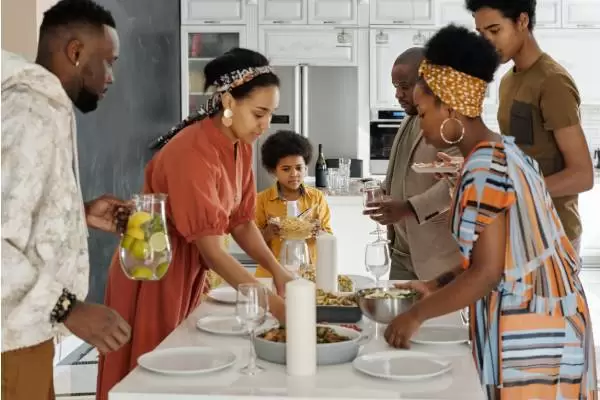
We don’t choose the family we are born into. And sometimes, as fate would have it, you are born into a dysfunctional household. Let’s figure out how to recognize this and what it is fraught with.
This is what the most common toxic patterns look like:
- Denial of the problems.
Everything is fine with our family, it is wonderful. If someone thinks otherwise, we will shut them up and ignore them. It doesn’t matter that Dad is drinking, Mom is emotionally cold, and people don’t talk to each other for days. We are not going to discuss it. We are not going to inquire about how other members of the household are doing.
Result: accumulated resentment and anger.
- Rigid rules and roles.
Everyone has their own duties. Dad should earn money, Mom should raise the children, the children should study hard and help Mom, grandma should babysit the grandchildren, etc. Personal desires do not matter, they are not being discussed.
Everyone has their own roles. Dad is strong, Mom is kind, the older child is smart, the younger one is good looking, and grandma is crazy.
Breaking away from the prescribed roles is frowned upon, suppressed, or ignored.
Result: the lack of self-perception, unawareness of own desires, inability to consider the desires of others, hypersensitivity to the opinions of others. In this case, the contact with the parents is full of anxiety.
- Repeated conflicts.
The family members may let off steam regarding the same issue, but the problem doesn’t get solved. They may yell, lecture, and reprimand each other, they may feel hurt, but they are not able to find a consensus.
Result: the tendency to be confrontational and explosive (when trying to release the tension), or the opposite: the tendency to evade conflicts and timidity (when trying to avoid the tension).
- Merging.
“We” instead of “I”. Every family member speaks on behalf of the family, not on their own behalf. We are having problems: we didn’t pass the exams. We earned bad grades this semester. We are not in a good mood (when Dad is feeling angry, for example). If someone lost their keys, the whole family should be looking for them. If someone is upset about something, everyone should be walking around with sad faces.
Result: the family members are not able to separate and live their own lives. The children and parents literally cannot live without each other. They don’t understand where one person ends, and the other one begins.
- A closed system.
A family without external connections. The parents have no friends: neither common friends nor individual ones. The children don’t have guests visiting them. Contact with the external world is limited. All the emotional connections exist within the household. My happiness depends on my Mom’s actions. My Mom’s happiness – on my actions.
Result: emotional dependency on each other and the inability to build emotional ties with other people.
Probably, you are wondering why, for what purpose, should you dig in and understand all of this? What’s past is past. Now you have a different adult life.
You have an adult life now, that’s true. But is it different – this is a big question. Because if you look closer, most likely, you are using the same patterns in your adult relationships. As they say, we act how we were taught. This may be the reason why you don’t like the outcome.
In order to have a different outcome, you need to analyze where you got this destructive pattern, why you are using it, and what alternatives are out there.
Then you can consider that you took the first step towards improving your relationships.
Self-therapy can be an essential tool for personal growth and self-improvement.
Browse through our courses and see the positive changes they can bring to your life.
You are not sure where to begin?









